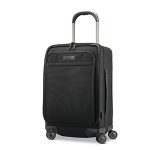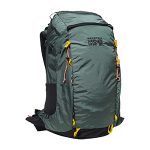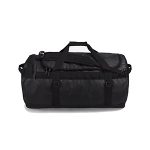There are no charging stations on Mount Kilimanjaro. We recommend bringing Power Banks and spare batteries. There are charging ports in our safari vehicles.
What Bags Should I Bring for Kilimanjaro?
What Bags Should I Bring for Kilimanjaro?
For your Mount Kilimanjaro climb in Tanzania, we suggest having three types of bags:
 Suitcase or Large Travel Bag
Suitcase or Large Travel Bag
Your first bag should be a suitcase or a large travel bag that you can check-in. This bag will be used to transport your belongings during your flight. Inside this bag, you can roll up your 90-liter duffel bag, which will be used later during the climb.
 30-35-Liter Daypack
30-35-Liter Daypack
You will also need a 30-35-liter daypack. This bag will serve as your carry-on for the flight and will also be used as your day pack on the mountain. It should be spacious enough to hold your essential items during the climb.
 70-90-Liter Duffel Bag
70-90-Liter Duffel Bag
Another bag you should bring is a 70-90-liter duffel bag. This bag will be used to store items that you will need at the camp during your climb. The porters will carry this bag for you and it will be placed inside a large water-resistant bag. You can rent this duffel bag during the trip briefing.
By having these three bags – a suitcase, a daypack, and a duffel bag – you will be well-prepared for your Mount Kilimanjaro adventure in Tanzania.
What medications and vaccinations do I need?

The US Center for Disease Control and Prevention (CDCP) recommends the following vaccinations and medications: Malaria, Yellow Fever (required if entering Tanzania from an ‘infected area’), Typhoid, Hepatitis A, Hepatitis B, and Rabies. Additionally, the CDCP recommends routine vaccinations for measles/mumps/rubella (MMR), diphtheria/pertussis/tetanus (DPT), and polio, if you are not up-to-date.
You may also want to bring Diamox, an FDA-approved prescription medication used to prevent and treat altitude sickness. Consult with your health care professional. Keep in mind you may be more susceptible to sunburn if you take Diamox.
Though not required, we do recommend having a COVID vaccination.
It is prudent for every client to have a medical check-up to see if they have any medical conditions that put them at increased risk when trekking at a high altitude. The minimum age of participants on our climbs is 16 years old. All clients 65 years of age or older are required to bring a doctor’s certificate stating they are fit to climb Kilimanjaro.
What’s the weather like on Kilimanjaro?
The weather on Kilimanjaro is divided into two seasons. The two wet seasons (November and Mid-March through the end of May) and the dry season (Mid December-Mid March, and June through October). The dry season is the best time to climb Kilimanjaro.
Do I need to bring a water filter or anything to purify water?
No, all water is provided by us. Water is taken from nearby streams, boiled, and filtered at lower elevations. At higher elevations, water is purified.
The water tastes great. However, you can bring flavored powders such as Gatorade or Nuun tablets to flavor the water.
I don’t live by a mountain, how else can I prepare for the altitude?

More information about these systems can be found here: https://www.higherpeak.com/
Do you rent any gear?
Yes, we rent out sleeping bags, duffel bags, jackets, and trekking poles. More information about our rental gear can be found here: Rental Gear
Please note: You will pay for the rental equipment with US Dollars, 2009 and newer bills at the trip briefing. It is not included in your booking form payments and we do not accept Credit Cards in Tanzania. Cash only.
What kind of bags should I bring, duffle bag or backpacks?
When climbing Kilimanjaro, you will need to bring at least two bags. One should be a daypack that you will carry during your hike. The second bag can be a duffle bag or a backpack. This bag should be 75 liters up to 90 liters. We do rent 90-liter duffel bags.
Think of your first bag, your daypack as your carry-on luggage. You will have access to this bag during the entire day as you hike. This daypack will weigh about 15 lbs. It will contain your water, your lunch, snacks, rain gear, camera, and maybe an extra layer of clothing.
Your second bag is like a check-in bag. You will give this bag to a porter and he will carry it from campsite to campsite. You will not have access to this bag during the day. It will be waiting for you inside your tent when you arrive at your campsite. This bag will contain all your other clothing and toiletries.
The second bag should not weigh more than 33 lbs. If it is a duffle bag, it does not need to be waterproof as the porters will put it inside another larger waterproof bag. However, we do recommend waterproofing everything inside of it in case the outer bag leaks. See here: https://youtu.be/0fhfp8J4UE4
If it is a backpack, it should have a rain cover because the porter will most likely wear it as a backpack as he carries it.

 Suitcase or Large Travel Bag
Suitcase or Large Travel Bag 30-35-Liter Daypack
30-35-Liter Daypack 70-90-Liter Duffel Bag
70-90-Liter Duffel Bag